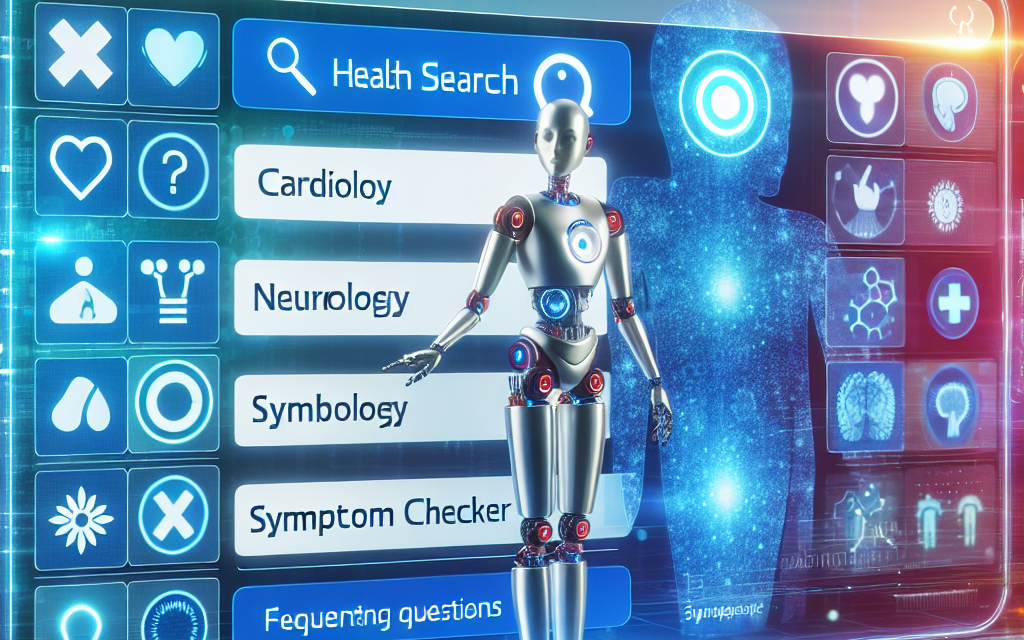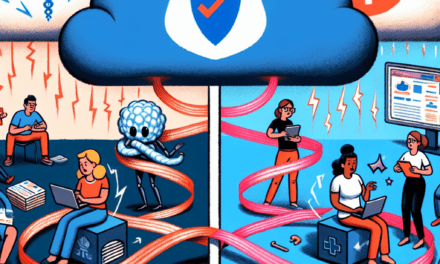Google’s AI-Powered Healthcare Search Tool Launches for Public Use

In an era where technology is rapidly transforming every aspect of our lives, healthcare is no exception. Google, a leader in technological innovation, has recently launched an AI-powered healthcare search tool for public use. This tool promises to revolutionize how individuals access and understand health information. In this article, we will explore the intricacies of this groundbreaking tool, its potential impact on healthcare, and the challenges it may face.
The Genesis of Google’s AI-Powered Healthcare Search Tool
The development of Google’s AI-powered healthcare search tool is rooted in the company’s long-standing commitment to leveraging technology for societal benefit. The tool is designed to provide users with accurate, reliable, and personalized health information, addressing the growing demand for accessible healthcare resources.
Google’s journey into healthcare began with its acquisition of DeepMind, a leading AI research lab, in 2014. DeepMind’s expertise in artificial intelligence laid the foundation for Google’s foray into healthcare, culminating in the development of this innovative search tool. The tool utilizes advanced machine learning algorithms to analyze vast amounts of medical data, providing users with relevant and personalized health information.
One of the key motivations behind the development of this tool is the increasing prevalence of misinformation in the healthcare sector. With the rise of the internet, individuals often turn to online sources for health information, which can be unreliable or misleading. Google’s AI-powered tool aims to address this issue by providing users with accurate and trustworthy information, sourced from reputable medical institutions and experts.
Moreover, the tool is designed to be user-friendly, with a simple and intuitive interface that allows users to easily navigate and access the information they need. This accessibility is crucial in ensuring that individuals from all walks of life can benefit from the tool, regardless of their technological proficiency.
How the AI-Powered Healthcare Search Tool Works
The AI-powered healthcare search tool operates by utilizing advanced machine learning algorithms to analyze and interpret vast amounts of medical data. This data is sourced from a variety of reputable medical institutions and experts, ensuring that the information provided is accurate and reliable.
When a user inputs a health-related query into the search tool, the AI algorithms analyze the query and retrieve relevant information from the database. The tool then presents this information in a user-friendly format, allowing users to easily understand and interpret the data.
One of the key features of the tool is its ability to provide personalized health information. By analyzing the user’s search history and preferences, the tool can tailor the information it provides to suit the individual’s specific needs and circumstances. This personalization is crucial in ensuring that users receive information that is relevant and applicable to their unique situation.
Additionally, the tool is equipped with natural language processing capabilities, allowing it to understand and interpret complex medical terminology. This feature is particularly beneficial for individuals who may not be familiar with medical jargon, as it enables them to access and understand the information they need without difficulty.
Furthermore, the tool is designed to be continuously updated, with new information and data being added regularly. This ensures that users have access to the most up-to-date and accurate health information available, allowing them to make informed decisions about their health and well-being.
The Impact of Google’s AI-Powered Healthcare Search Tool on Healthcare
The launch of Google’s AI-powered healthcare search tool has the potential to significantly impact the healthcare sector, transforming how individuals access and understand health information. One of the most notable impacts is the tool’s ability to democratize healthcare information, making it accessible to individuals from all walks of life.
By providing users with accurate and reliable health information, the tool empowers individuals to take control of their health and make informed decisions about their well-being. This empowerment is particularly important in today’s digital age, where misinformation and unreliable sources can often lead to confusion and misinformed decisions.
Moreover, the tool has the potential to alleviate the burden on healthcare professionals by reducing the number of unnecessary consultations and appointments. By providing users with the information they need to manage minor health issues independently, the tool can help to free up valuable resources and allow healthcare professionals to focus on more complex cases.
Additionally, the tool’s ability to provide personalized health information can lead to improved patient outcomes. By tailoring the information it provides to suit the individual’s specific needs and circumstances, the tool can help users to better understand their health conditions and make informed decisions about their treatment options.
Furthermore, the tool’s continuous updates and access to the latest medical research and data ensure that users have access to the most current and accurate information available. This is particularly important in the rapidly evolving field of healthcare, where new discoveries and advancements are constantly being made.
Challenges and Concerns Surrounding the AI-Powered Healthcare Search Tool
While the launch of Google’s AI-powered healthcare search tool is undoubtedly a significant advancement in the field of healthcare, it is not without its challenges and concerns. One of the primary concerns is the potential for privacy and security issues, as the tool requires access to users’ personal health information in order to provide personalized recommendations.
To address these concerns, Google has implemented stringent security measures to protect users’ data and ensure their privacy. However, as with any technology that involves the collection and analysis of personal information, there is always a risk of data breaches and unauthorized access.
Another challenge is the potential for the tool to perpetuate existing health disparities. While the tool is designed to be accessible to individuals from all walks of life, there is a risk that it may not be equally accessible to all individuals, particularly those from marginalized or underserved communities.
To mitigate this risk, Google has made efforts to ensure that the tool is available in multiple languages and is accessible to individuals with varying levels of technological proficiency. However, there is still work to be done to ensure that the tool is truly inclusive and accessible to all individuals.
Additionally, there is a concern that the tool may lead to an over-reliance on technology for health information, potentially undermining the role of healthcare professionals. While the tool is designed to complement, rather than replace, professional medical advice, there is a risk that individuals may rely solely on the tool for their health information, leading to potential misdiagnoses or inappropriate treatment decisions.
Future Prospects and Developments for Google’s AI-Powered Healthcare Search Tool
The launch of Google’s AI-powered healthcare search tool marks a significant milestone in the field of healthcare, but it is only the beginning. As technology continues to evolve, there are numerous opportunities for further development and enhancement of the tool.
One potential area for development is the integration of additional features and functionalities, such as telemedicine capabilities or integration with wearable health devices. These features could further enhance the tool’s ability to provide personalized and comprehensive health information, allowing users to monitor and manage their health more effectively.
Additionally, there is potential for the tool to be expanded to include a wider range of health conditions and topics, providing users with even more comprehensive and diverse health information. This expansion could be achieved through partnerships with additional medical institutions and experts, ensuring that the tool remains a reliable and authoritative source of health information.
Furthermore, as artificial intelligence technology continues to advance, there is potential for the tool’s algorithms to become even more sophisticated and accurate, further enhancing its ability to provide personalized and relevant health information.
Ultimately, the future prospects for Google’s AI-powered healthcare search tool are promising, with numerous opportunities for further development and enhancement. As the tool continues to evolve, it has the potential to become an indispensable resource for individuals seeking reliable and accurate health information.
Conclusion
In conclusion, the launch of Google’s AI-powered healthcare search tool represents a significant advancement in the field of healthcare, with the potential to revolutionize how individuals access and understand health information. By providing users with accurate, reliable, and personalized health information, the tool empowers individuals to take control of their health and make informed decisions about their well-being.
While there are challenges and concerns surrounding the tool, such as privacy and security issues and the potential for health disparities, Google has made efforts to address these concerns and ensure that the tool is accessible and inclusive to all individuals.
As technology continues to evolve, there are numerous opportunities for further development and enhancement of the tool, with the potential for additional features and functionalities and expanded coverage of health conditions and topics.
Ultimately, Google’s AI-powered healthcare search tool has the potential to become an indispensable resource for individuals seeking reliable and accurate health information, transforming the way we access and understand healthcare in the digital age.





